 <b>Darryl Macdonald</b> is the Executive Director of the Palm Springs International Film Society, which produces both the Palm Springs International Film Festival and the Palm Springs International Festival of Short Films. He is the co-founder and has been the Executive and Artistic Director of The Seattle International Film Festival since its inception in 1975, where he served in that capacity until assuming the position of Executive Director of the Palm Springs International Film Society in October of 2003. Simultaneously, he served as the Artistic Director of the Palm Springs Film Festival (1989 -1993), the Hamptons Film Festival (1993 -1996) and as the Programming Director of the Vancouver International Film Festival (1988 -1992), which he helped found in 1980. He has also served as the Director of the Goodwill Games Film Festival, the Women in Cinema Festival, and the Washington State Centennial Film Festival.
<b>Darryl Macdonald</b> is the Executive Director of the Palm Springs International Film Society, which produces both the Palm Springs International Film Festival and the Palm Springs International Festival of Short Films. He is the co-founder and has been the Executive and Artistic Director of The Seattle International Film Festival since its inception in 1975, where he served in that capacity until assuming the position of Executive Director of the Palm Springs International Film Society in October of 2003. Simultaneously, he served as the Artistic Director of the Palm Springs Film Festival (1989 -1993), the Hamptons Film Festival (1993 -1996) and as the Programming Director of the Vancouver International Film Festival (1988 -1992), which he helped found in 1980. He has also served as the Director of the Goodwill Games Film Festival, the Women in Cinema Festival, and the Washington State Centennial Film Festival. From 1975 -1987, Macdonald established and operated the Egyptian Theater in Seattle, which gained recognition as the premiere art film venue in the Northwestern United States by winning awards from the Independent Feature Project for its contributions to the promotion of American independent cinema, a Golden Calf Award from the Dutch film industry for advancing the efforts of Dutch filmmakers, and a Mayor’s Small Business Award citation from the City of Seattle.
In 1996, Mr. Macdonald received a life achievement award from the Capitol Hill Chamber of Commerce for his establishment of the Egyptian Theatre and the Seattle International Film Festival. In May, 1999, he was awarded a “Distinguished Citizen”
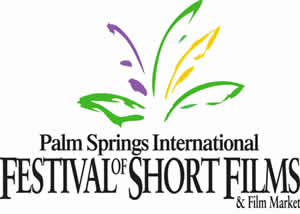 medal by the Mayor of Seattle, Paul Schell, for his work in the film arts. In May 2003, he was presented with the “Event Producer of the Year” Award from K.E.P.A., the Northwest Events Producers Association. In June of 2004, Macdonald was awarded the Chevalier de l’Ordre des Arts et des Lettres by the Republic of France for his ongoing contribution to French film.
medal by the Mayor of Seattle, Paul Schell, for his work in the film arts. In May 2003, he was presented with the “Event Producer of the Year” Award from K.E.P.A., the Northwest Events Producers Association. In June of 2004, Macdonald was awarded the Chevalier de l’Ordre des Arts et des Lettres by the Republic of France for his ongoing contribution to French film.He has served on the Award Juries of several international film festivals and the Independent Spirit Awards. He has written articles on film and filmmaking for Variety, Reel News, and the Hollywood Reporter, among other publications. He currently serves on the Advisory Council for the Documentary Channel and the Board of the Seattle International Film Festival, in addition to his ongoing film programming and writing work for the Palm Springs International Film Society.
Over the course of his career, Macdonald has arranged or moderated tributes, staged interviews, panel discussions, seminars and press conferences for such diverse talents as Peter Weir, Mel Gibson, John Sayles, James Stewart, Marcello Mastroianni, Steven Spielberg, Robert Wise, Steven Soderbergh, John Schlesinger, Bertrand Tavernier, and Martin Scorsese, among many others.
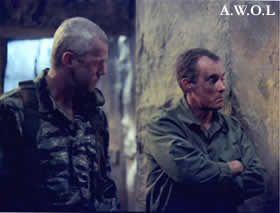 Bijan Tehrani: Please tell us a little bit of the background of both of your festivals: The Palm Springs International Film Festival and Palm Springs ShortFest.
Bijan Tehrani: Please tell us a little bit of the background of both of your festivals: The Palm Springs International Film Festival and Palm Springs ShortFest.Darryl Macdonald: The idea behind PSIFF truly did spring from the mind of Sonny Bono. He was focused on the concept of an arts event that would build tourism in Palm Springs and, in 1989, he enlisted a group of people—led by the then-director of the Hawaii Film
Festival, Jeanette Paulson, who brought me into the process—to do a feasibility study for a film festival based here. His original concept was to mount a film festival based on highly anticipated upcoming releases from the major studios with major stars attached. Knowing that the studios were less than enthusiastic about becoming involved in
 film festivals at the time, (for fear of tarnishing their films with an “art film” cachet for the mass market) we convinced him that mounting an event dedicated to the best of international cinema had much more potential to succeed, particularly given the fact that so many festivals in America at the time were focused on and dedicated to the burgeoning American Indie film scene. We all agreed that Palm Springs provided an ideal venue for a film festival, given its close proximity to L.A.,one of the two largest media markets in the U.S. and the center of the American film industry, it’s idyllic weather and gorgeous setting, and its fabled past as a back-door getaway playground for Hollywood stars and industry. He gave the go-ahead, then used his position as Mayor of the town to persuade major corporate sponsors like American Airlines, Wells Fargo Bank and Nortel to support the event. He gave us free reign in terms of the artistic choices and truly was the heart of the Festival in terms of his unstinting support for and appreciation of our efforts. He got it, and indeed, the Festival was an immediate success, drawing 15,000 filmgoers that first year (1990) and doubling its audience with each succeeding edition in those heady early years. He also hosted the party that became the highlight of each of those early years’ social scene—a favorite of the filmmakers and industry that attended the Festival; he’d host the party at his own fabulous mid-century house in Twin Palms, and every year you could count on him to jump up at some point and join the band for a solo rendition of his classic “I Got You Babe”. The crowd would go wild; it was a perfect combo of camp and nostalgia, and the filmmakers would leave town still buzzing about it.
film festivals at the time, (for fear of tarnishing their films with an “art film” cachet for the mass market) we convinced him that mounting an event dedicated to the best of international cinema had much more potential to succeed, particularly given the fact that so many festivals in America at the time were focused on and dedicated to the burgeoning American Indie film scene. We all agreed that Palm Springs provided an ideal venue for a film festival, given its close proximity to L.A.,one of the two largest media markets in the U.S. and the center of the American film industry, it’s idyllic weather and gorgeous setting, and its fabled past as a back-door getaway playground for Hollywood stars and industry. He gave the go-ahead, then used his position as Mayor of the town to persuade major corporate sponsors like American Airlines, Wells Fargo Bank and Nortel to support the event. He gave us free reign in terms of the artistic choices and truly was the heart of the Festival in terms of his unstinting support for and appreciation of our efforts. He got it, and indeed, the Festival was an immediate success, drawing 15,000 filmgoers that first year (1990) and doubling its audience with each succeeding edition in those heady early years. He also hosted the party that became the highlight of each of those early years’ social scene—a favorite of the filmmakers and industry that attended the Festival; he’d host the party at his own fabulous mid-century house in Twin Palms, and every year you could count on him to jump up at some point and join the band for a solo rendition of his classic “I Got You Babe”. The crowd would go wild; it was a perfect combo of camp and nostalgia, and the filmmakers would leave town still buzzing about it.
 After my fourth year with the Festival (during which I was also still running the Seattle Film Festival and heading up the programming at the Vancouver Film Festival), I left to take the reins of the first Hamptons Film Festival, and didn’t return to work in Palm Springs until the run up to the 15th edition (in January of 2004) after they made me an offer I couldn’t refuse. At the time, craving a new challenge, I parachuted in here three months before the Festival was to start and put together a team virtually overnight. The Festival that year was wildly successful and formed the basis for the rapid growth in programming scope and audience size that we’ve been enjoying ever since.
After my fourth year with the Festival (during which I was also still running the Seattle Film Festival and heading up the programming at the Vancouver Film Festival), I left to take the reins of the first Hamptons Film Festival, and didn’t return to work in Palm Springs until the run up to the 15th edition (in January of 2004) after they made me an offer I couldn’t refuse. At the time, craving a new challenge, I parachuted in here three months before the Festival was to start and put together a team virtually overnight. The Festival that year was wildly successful and formed the basis for the rapid growth in programming scope and audience size that we’ve been enjoying ever since.
ShortFest was started during the larger Festival’s 5th year and sprung out of the desire to create a showcase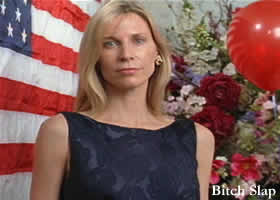 and springboard for an art form that was languishing at the time. Without many opportunities or outlets for the short film format to gain exposure to audiences or the industry, it was devised as a platform to celebrate the art of short filmmaking and introduce new filmmaking talent to the world. It has become a major passion for all involved and our staff, in many ways, enjoys working on it even more than the feature film festival in January. We liken it to a short film summer camp, with young filmmakers coming to Palm Springs from all over the world to revel in the exhibition of some amazing work and learn from experts in the field as well as each other. ShortFest is inspired by the sheer joy of the creative process of filmmaking, without being overwhelmed by the commercial considerations that sometimes permeate film festivals dedicated to the exhibition and promotion of feature-length films showcasing well established directors and other creative talent. It’s become one of the key short film events in the world, having the additional distinction of presenting over 50 short films that went on to gain Oscar nominations in the course of the 12 years we’ve been mounting it. It’s an Academy-sanctioned event that also provides over $70,000 in cash and production awards to short filmmakers in 21 different categories.
and springboard for an art form that was languishing at the time. Without many opportunities or outlets for the short film format to gain exposure to audiences or the industry, it was devised as a platform to celebrate the art of short filmmaking and introduce new filmmaking talent to the world. It has become a major passion for all involved and our staff, in many ways, enjoys working on it even more than the feature film festival in January. We liken it to a short film summer camp, with young filmmakers coming to Palm Springs from all over the world to revel in the exhibition of some amazing work and learn from experts in the field as well as each other. ShortFest is inspired by the sheer joy of the creative process of filmmaking, without being overwhelmed by the commercial considerations that sometimes permeate film festivals dedicated to the exhibition and promotion of feature-length films showcasing well established directors and other creative talent. It’s become one of the key short film events in the world, having the additional distinction of presenting over 50 short films that went on to gain Oscar nominations in the course of the 12 years we’ve been mounting it. It’s an Academy-sanctioned event that also provides over $70,000 in cash and production awards to short filmmakers in 21 different categories.
 This year’s 13th annual edition of the event will present more than 350 new short films from 40 countries, with 300 young filmmakers attending the event to participate in the week-long celebration of the short film art form which encompasses special events and showcases, and a three-day program of seminars, master classes and panel discussions featuring industry professionals and experts in the short film field. Over 2,200 new short films are included in the ShortFest Film Market, running concurrently with the Festival. Over the course of the Festival’s first 12 years, 52 short films from the Festival have gone on to gain Oscar nominations in the AMPAS Short Film categories of Best Animated Short and Best Live Action Short, including this year’s Oscar winner in the Animated Short Film Category, The Danish Poet.
This year’s 13th annual edition of the event will present more than 350 new short films from 40 countries, with 300 young filmmakers attending the event to participate in the week-long celebration of the short film art form which encompasses special events and showcases, and a three-day program of seminars, master classes and panel discussions featuring industry professionals and experts in the short film field. Over 2,200 new short films are included in the ShortFest Film Market, running concurrently with the Festival. Over the course of the Festival’s first 12 years, 52 short films from the Festival have gone on to gain Oscar nominations in the AMPAS Short Film categories of Best Animated Short and Best Live Action Short, including this year’s Oscar winner in the Animated Short Film Category, The Danish Poet.
Programming is ongoing over the next four months, but among the more than 35 different themes of the 2007 ShortFest film packages to be showcased at the event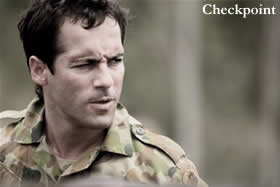 are: Iraq and a Hard Place (focusing on the Middle East); Thunder from Down Under (a ‘curiously strong’ package of shorts from Australia and New Zealand) ; The Post-Nuclear Family (focusing on the diversity of modern family units); as well as packages devoted to GLBT-themed short films, Latino shorts, and other themes to be announced, along with a broad range of programming covering such genres as comedy, horror, musical, action and crime. As always, the Festival will open with a package of award-winning shorts from major international events such as the Cannes, Sundance and Berlin Film Festivals, the European Film Awards, and the Annency Animation Film Festival.
are: Iraq and a Hard Place (focusing on the Middle East); Thunder from Down Under (a ‘curiously strong’ package of shorts from Australia and New Zealand) ; The Post-Nuclear Family (focusing on the diversity of modern family units); as well as packages devoted to GLBT-themed short films, Latino shorts, and other themes to be announced, along with a broad range of programming covering such genres as comedy, horror, musical, action and crime. As always, the Festival will open with a package of award-winning shorts from major international events such as the Cannes, Sundance and Berlin Film Festivals, the European Film Awards, and the Annency Animation Film Festival.
Bijan: The Palm Springs International Film Festival offers one of the best collections of recent movies from international cinema. Please tell us about your focus on international cinema and how you managed to put together this section of the festival. Are international films welcomed by the festival audience?  Darryl: New international cinema and emerging artists have been the Festival’s main focus since its earliest years and we’ve always prided ourselves on showcasing cutting-edge work by new international filmmakers alongside the most accomplished new works by established masters of international cinema. As the Festival line-up has grown in size, we’ve been able to add special showcases focusing on countries or regions in which an abundance of particularly distinctive work from exciting new artists is beginning to emerge—such as our current “Cine Latino” section. We have a team of eight very astute programmers including Marie-Pierre Mascia in France (who is the former head of the Director’s Fortnight section at the Cannes Film Festival), Angelo Acerbi in Rome (who has programmed for a number of esteemed film festivals in Italy), Anita Monga (a widely praised programmer with 25 years experience based in San Francisco), Denis DelaRoca (an astute Latin American film expert whose programming experience ranges from the legendary L.A. FILMEX to the up-and-coming Tribeca Film Festival) and veteran programmer/film curator Alissa Simon, who has also served on juries from San Francisco and Montreal to Sarajevo and Torino. Heading up the team is Carl Spence, who I worked with for 8 years at the Seattle International Film Festival. Since then, he has served as the Director of Programming at the San Francisco Film Festival and Palm Springs, and he is now the Artistic Director at the Seattle Fest. This large team of programming professionals represents close to 100 years of experience, and each brings particular strengths and interests to the mix of programming at Palm Springs. Each programmer attends a number of major international festivals around the world every year, and each also has a broad network of international film industry contacts that help keep them abreast of the best new films and talent to prioritize among the films they have an opportunity to see.
Darryl: New international cinema and emerging artists have been the Festival’s main focus since its earliest years and we’ve always prided ourselves on showcasing cutting-edge work by new international filmmakers alongside the most accomplished new works by established masters of international cinema. As the Festival line-up has grown in size, we’ve been able to add special showcases focusing on countries or regions in which an abundance of particularly distinctive work from exciting new artists is beginning to emerge—such as our current “Cine Latino” section. We have a team of eight very astute programmers including Marie-Pierre Mascia in France (who is the former head of the Director’s Fortnight section at the Cannes Film Festival), Angelo Acerbi in Rome (who has programmed for a number of esteemed film festivals in Italy), Anita Monga (a widely praised programmer with 25 years experience based in San Francisco), Denis DelaRoca (an astute Latin American film expert whose programming experience ranges from the legendary L.A. FILMEX to the up-and-coming Tribeca Film Festival) and veteran programmer/film curator Alissa Simon, who has also served on juries from San Francisco and Montreal to Sarajevo and Torino. Heading up the team is Carl Spence, who I worked with for 8 years at the Seattle International Film Festival. Since then, he has served as the Director of Programming at the San Francisco Film Festival and Palm Springs, and he is now the Artistic Director at the Seattle Fest. This large team of programming professionals represents close to 100 years of experience, and each brings particular strengths and interests to the mix of programming at Palm Springs. Each programmer attends a number of major international festivals around the world every year, and each also has a broad network of international film industry contacts that help keep them abreast of the best new films and talent to prioritize among the films they have an opportunity to see.
The Festival audience embraces international cinema passionately. What’s remarkable about our audience is that while Palm Springs enjoys one of the largest audiences of any Festival in the US—120,000 admissions at last year’s event—more than 70% of that audience comes from outside of Palm Springs and the Coachella Valley. They are people who travel to Palm Springs specifically to attend the Festival each year and, unlike Festivals such as Sundance, Cannes, Telluride and the like—resort-based Festivals which are largely attended by people working in the film industry—the Palm Springs Festival audience is largely made up of regular filmgoers who come not to ogle stars, but to immerse themselves in international cinema.
audiences of any Festival in the US—120,000 admissions at last year’s event—more than 70% of that audience comes from outside of Palm Springs and the Coachella Valley. They are people who travel to Palm Springs specifically to attend the Festival each year and, unlike Festivals such as Sundance, Cannes, Telluride and the like—resort-based Festivals which are largely attended by people working in the film industry—the Palm Springs Festival audience is largely made up of regular filmgoers who come not to ogle stars, but to immerse themselves in international cinema.
Bijan: Do any of the foreign filmmakers attend the festival? If yes, can you please name a few that attended at the last Palm Springs International Film Festival?
Darryl: Over 200 international filmmakers make the trek to Palm Springs each year, and among this year’s attendees were Guillermo Del Toro, John Boorman, Alejandro Gonzalez Inarritu, Danielle Thompson, Jean-Marc Barr, Paul Verhoeven, Marion Hansel, Todd Field, Jonathan Dayton and Valerie Feris.  Bijan: Are there any chances for networking for the filmmakers attending the festival? Do any of the distributors come to the Palm Springs International Film Festival?
Bijan: Are there any chances for networking for the filmmakers attending the festival? Do any of the distributors come to the Palm Springs International Film Festival?
Darryl: There is a full roster of social and cultural events for filmmakers and film industry attending the Festival, along with the obligatory Guest and Industry Suite. We make sure they have many opportunities for networking. As for distributors, virtually every specialized distribution company in the U.S. has acquisition reps attending the Festival, and a good number of major international sales agents also attend.
Bijan: How is the Palm Springs International Film Festival’s relationship with the educational community?
Darryl: We’ve just hired our new Educational Programs Coordinator, who is putting together a series of programs focusing on various genres and the iconographic films and performances that defined them. This is part of our ongoing exploration of various facets of our film heritage, providing a historical perspective on the way the cinema reflects the society from which it springs. The programming is intended for both students and adult filmgoers.
We work with local high schools and middle schools in the Coachella Valley, as well as with local colleges and universities such as the College of the Desert, the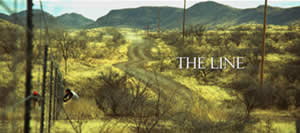 University of California, Riverside-Palm Desert and the California State University-San Bernardino at Palm Desert to provide free student screenings and tickets for students to regular screenings and Talking Pictures programs during the International Film Festival in January. In addition, we’ve worked with the Global Film Initiative to present free student screenings of their series of contemporary international films and the related curriculum materials developed by GFI and the Film Department of MOMA in New York. We hope to be hosting their new series for students here this fall.
University of California, Riverside-Palm Desert and the California State University-San Bernardino at Palm Desert to provide free student screenings and tickets for students to regular screenings and Talking Pictures programs during the International Film Festival in January. In addition, we’ve worked with the Global Film Initiative to present free student screenings of their series of contemporary international films and the related curriculum materials developed by GFI and the Film Department of MOMA in New York. We hope to be hosting their new series for students here this fall.
 Regarding Palm Springs ShortFest, roughly half of the films in the Festival and its various competitions are student films and ShortFest itself is an AMPAS sanctioned event, which qualifies its award-winning films for submission for the Academy Awards in the animated and live action short film categories, in addition to three student categories. In this sense, we are also serving the community of student filmmakers at filmmaking schools across the country and around the world.
Regarding Palm Springs ShortFest, roughly half of the films in the Festival and its various competitions are student films and ShortFest itself is an AMPAS sanctioned event, which qualifies its award-winning films for submission for the Academy Awards in the animated and live action short film categories, in addition to three student categories. In this sense, we are also serving the community of student filmmakers at filmmaking schools across the country and around the world.
Bijan: I believe you attended the Berlin International Film Festival 2007. Please tell us about your experience there and how it serves the Palm Springs International Film Festival?
Darryl: Berlin serves a dual purpose for PSIFF programmers: six of us attended that Festival this year, and Berlin almost requires it given that there were close to 1,000 titles on view at the 2007 event. The Berlin Fest offers an opportunity to see the best of what’s new and upcoming from film industries around the world, discover new filmmaking talents and also see newly restored classics from around the world. It provides us with an opportunity to meet with film producers, national representatives and sales agents in a very constructive and concentrated way to talk about upcoming work, as well as to see product reels and advance footage of films that are currently being made, and which will be ready in time for our Festival at the beginning of the new year. This year was a particularly fruitful year; the films were stronger than those we’ve seen the last couple of years at Berlin – the documentary work was particularly striking, and there was a plethora of accomplished work from new talents as well as a number of excellent films from established masters of world cinema.
All photos in this article are from short films attending Palm Spring ShortFest 2007
